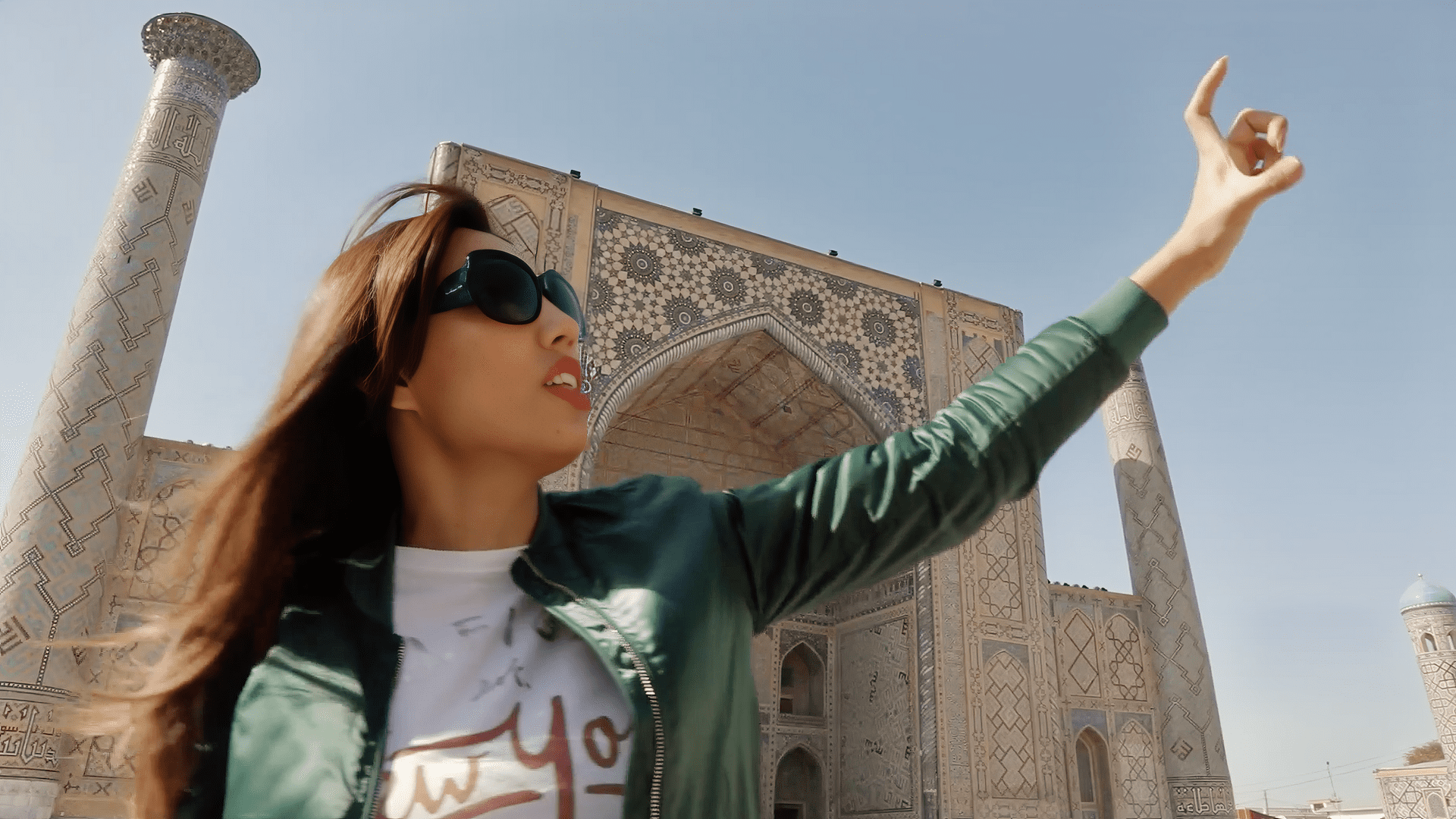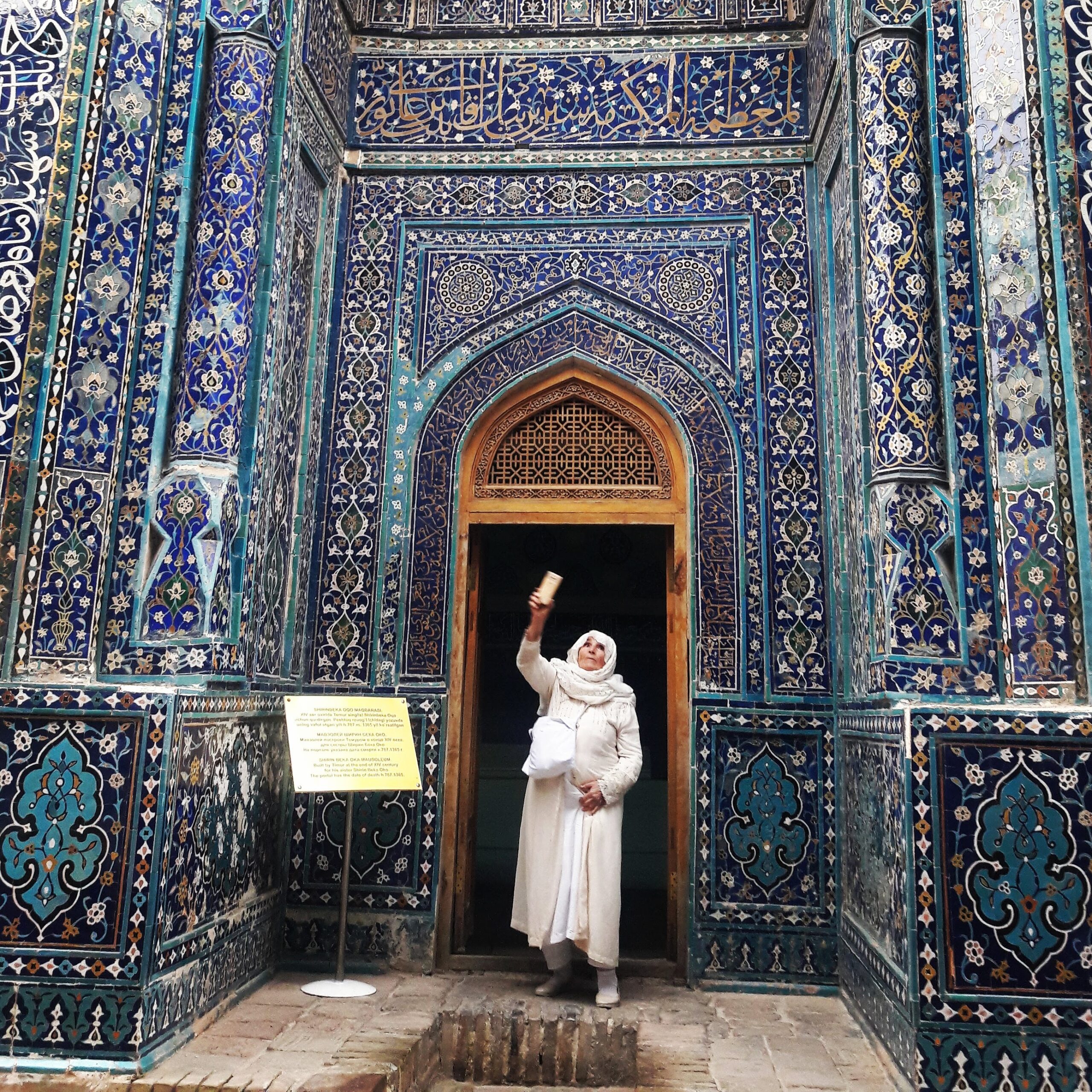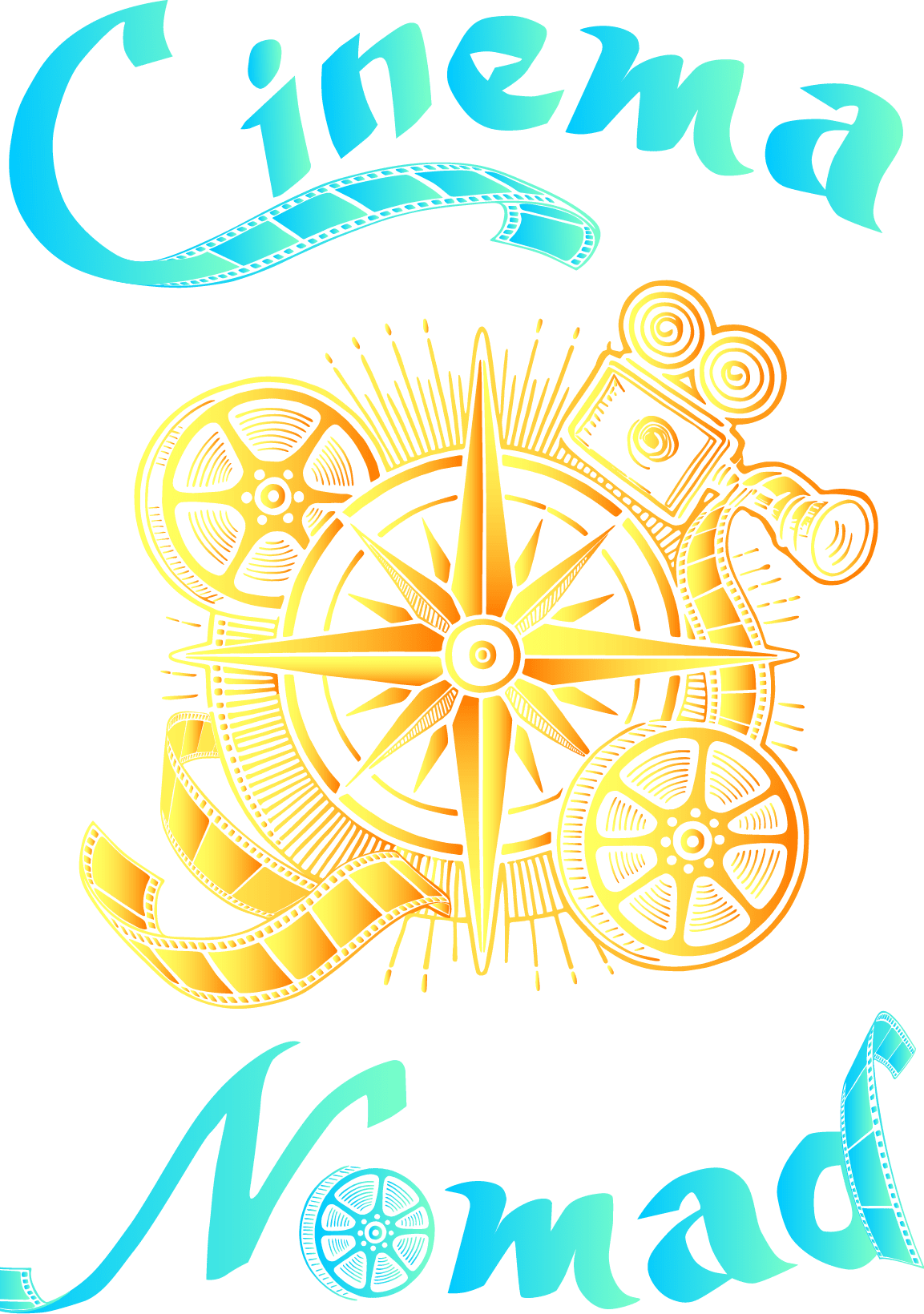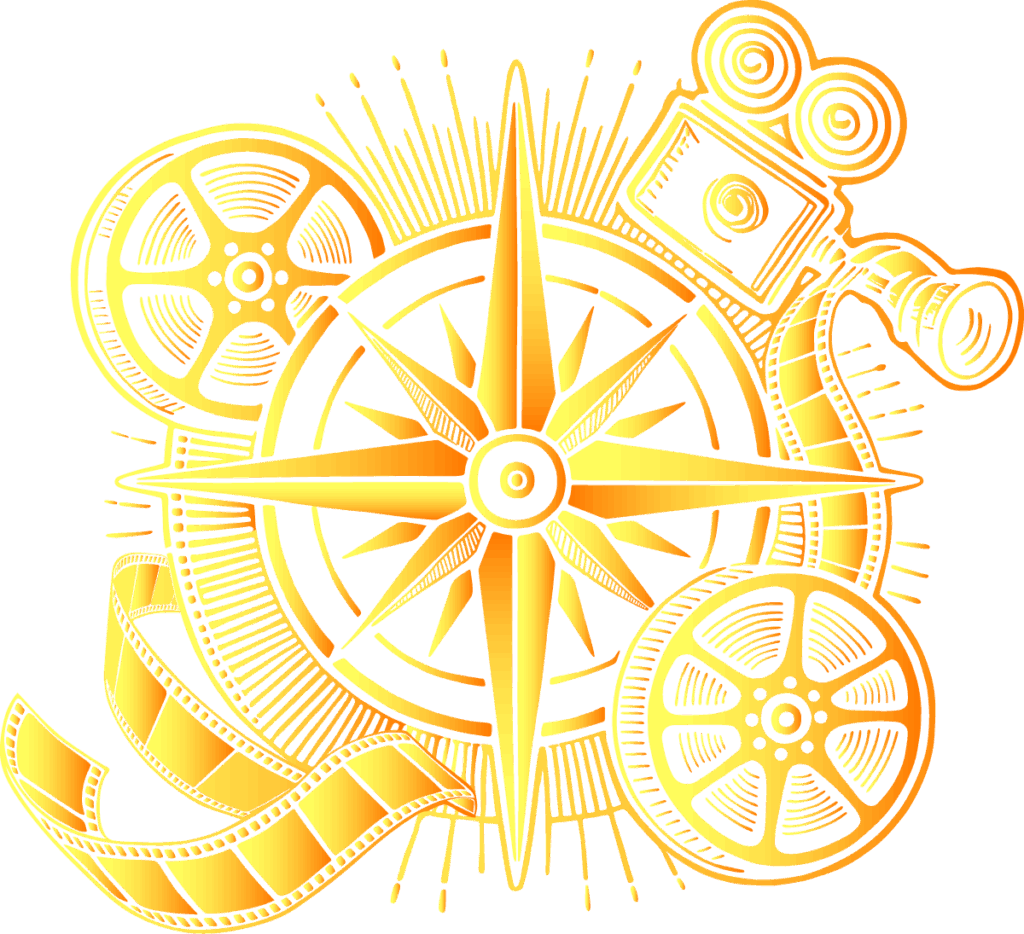
Uzbekistan
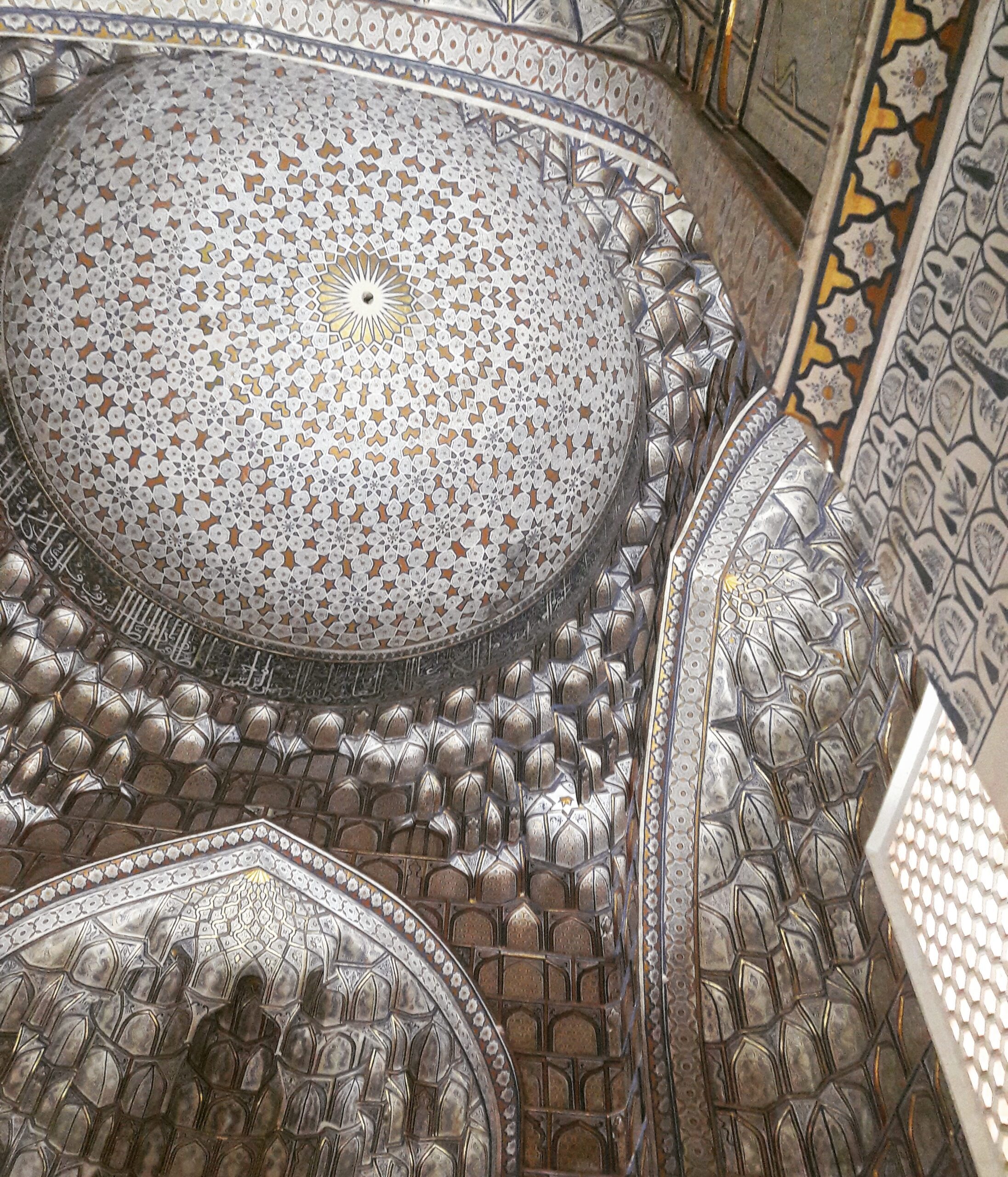
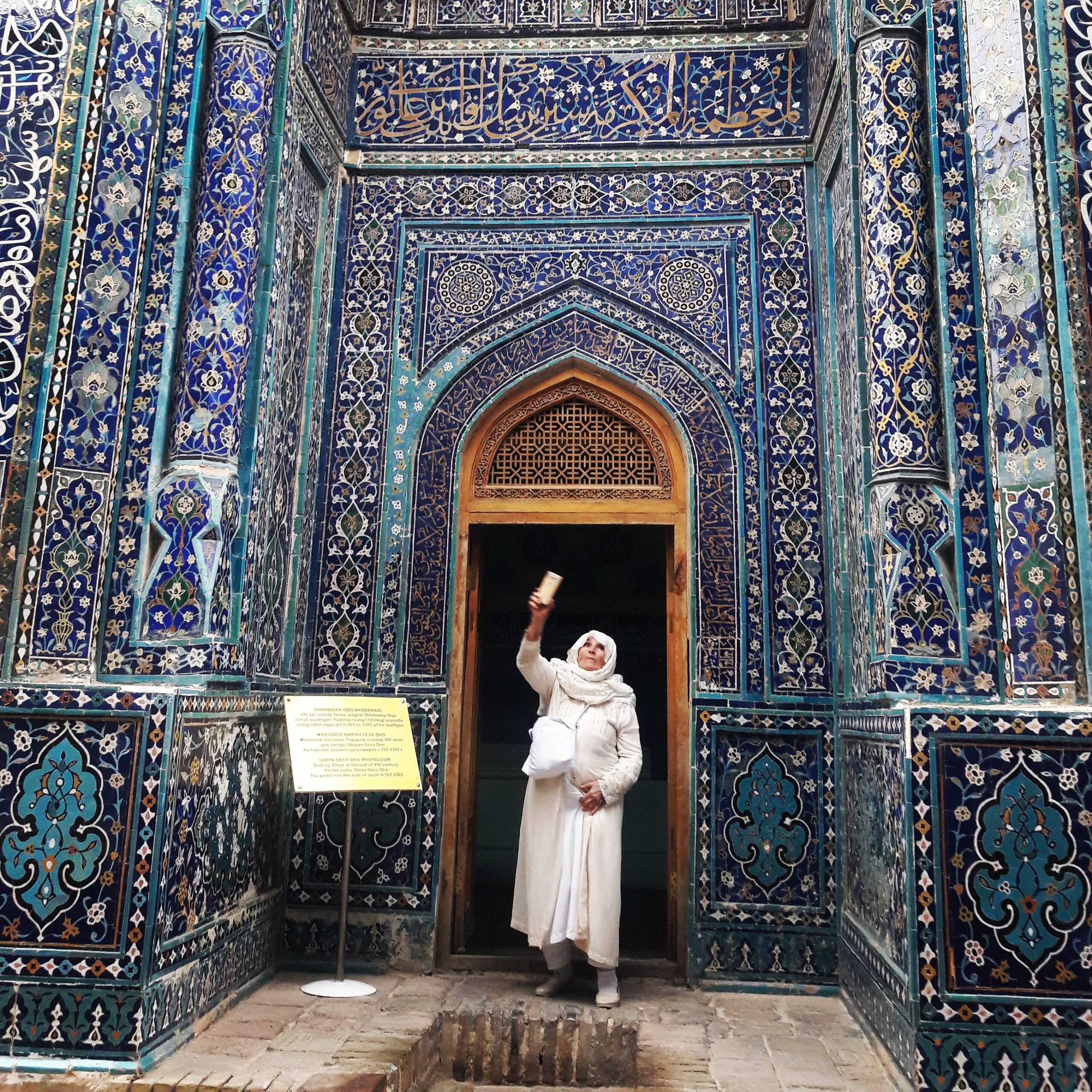
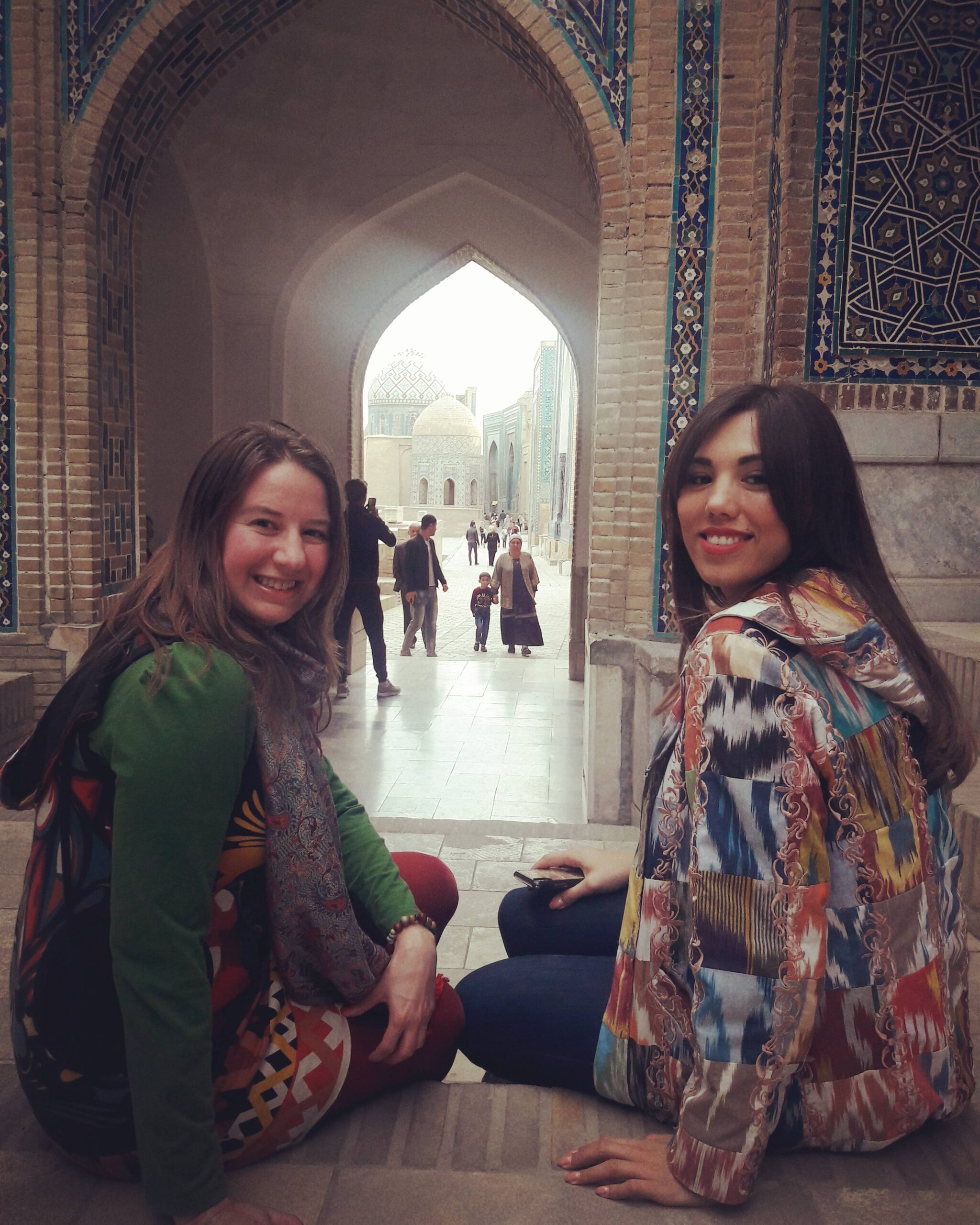
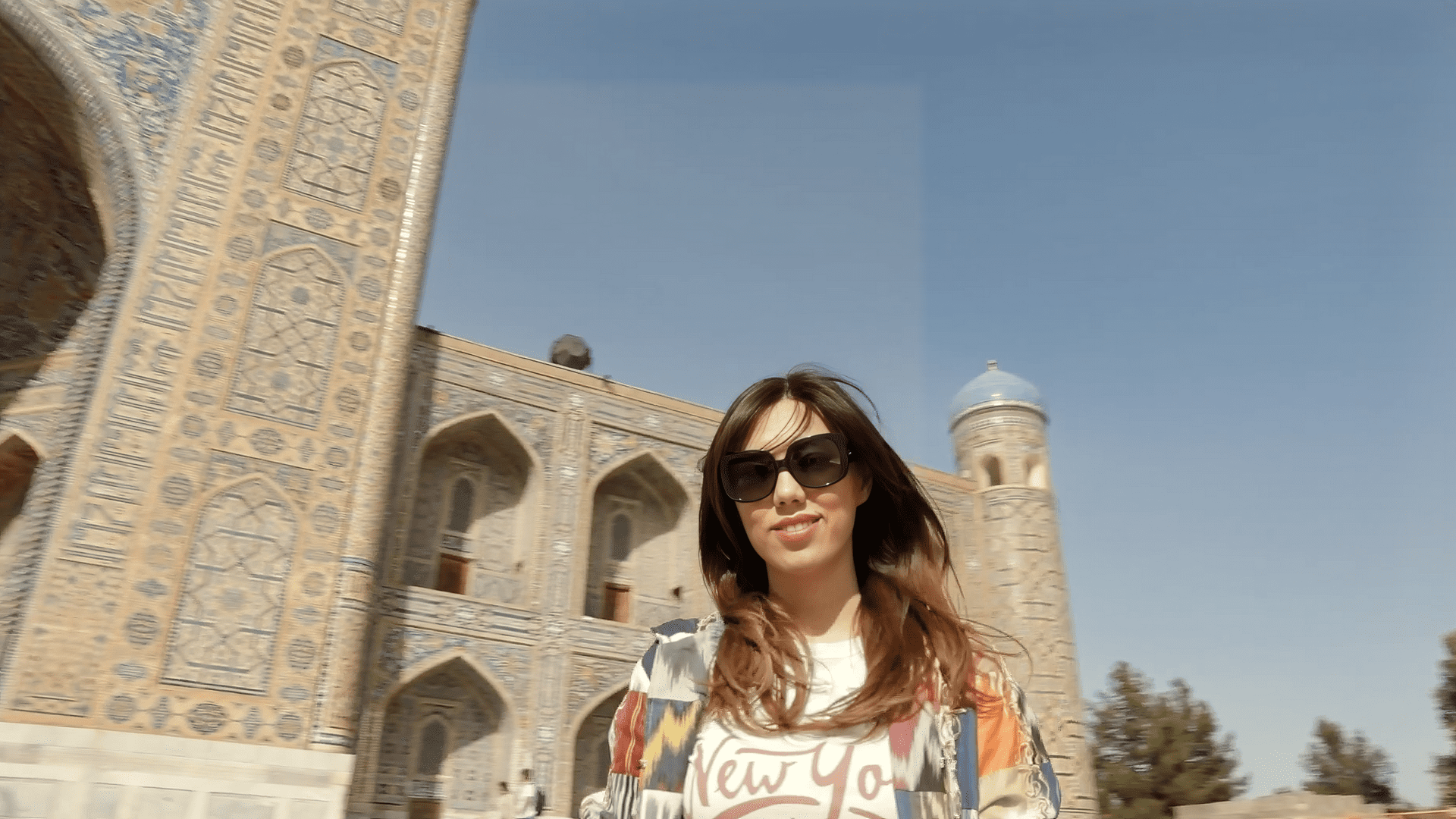
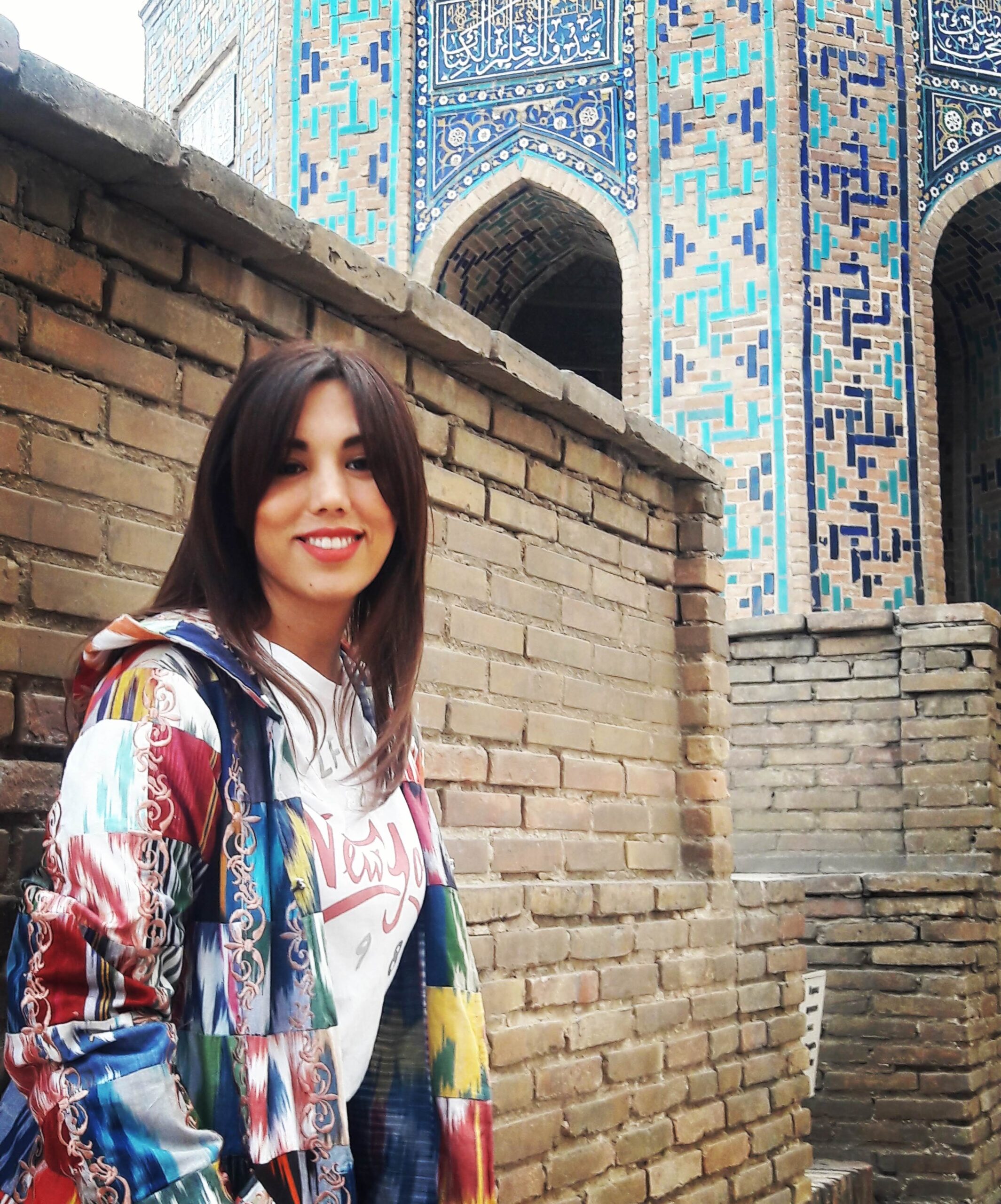
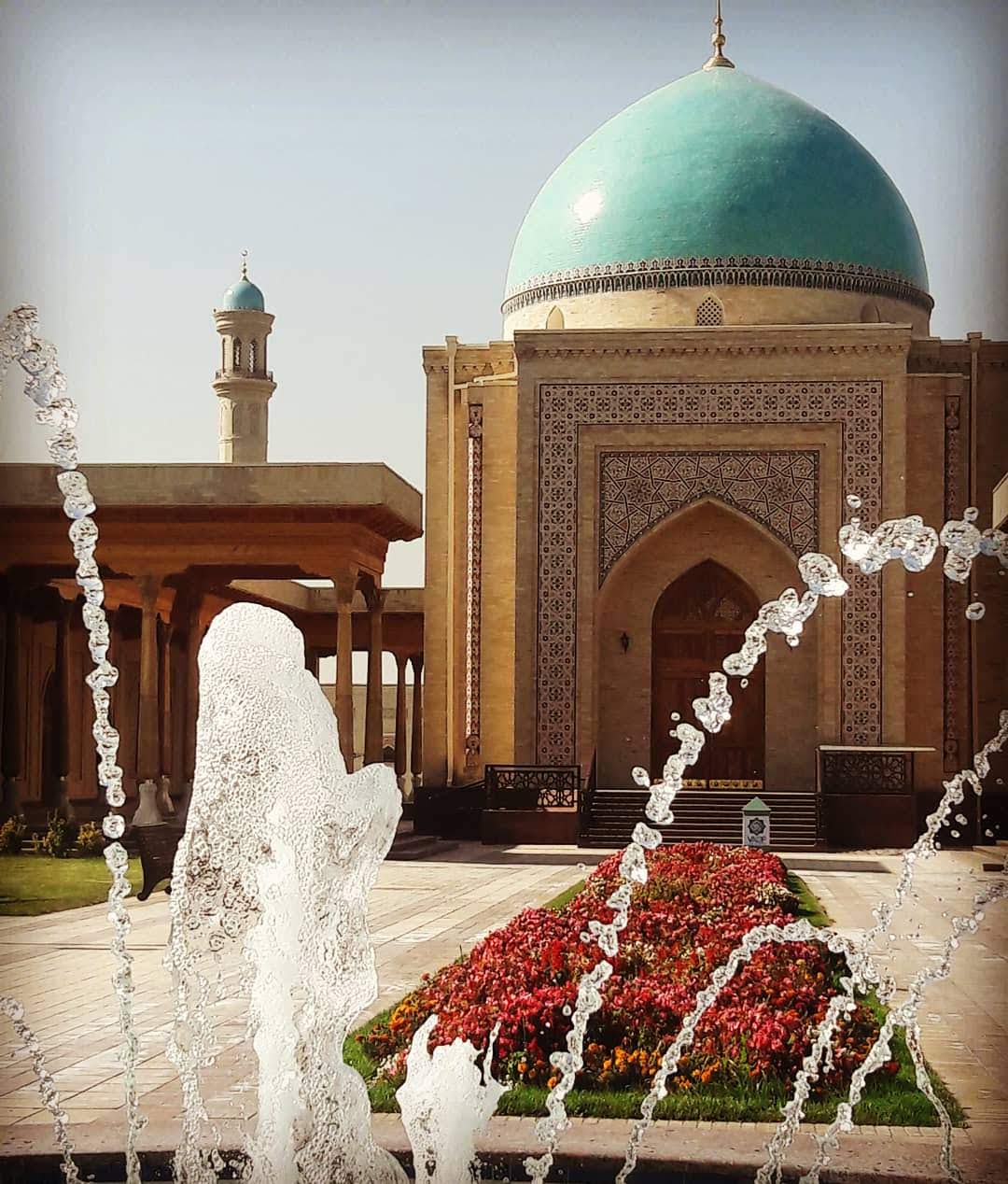
104: Uzbekistan
We get to know the enigmatic Mukhlisa in Tashkent, Uzbekistan, a Central Asian nation at the heart of the historic Silk Road. She’s a strong and determined woman in charge of the National Film Commission, and her spy-thriller flick, “Scorpion,” made her an overnight celebrity. We explore a 100 year-old-cinema history, and enjoy the eclectic architecture of this post-Soviet nation.
Where Were You at 33?
Name: Mukhlisa Azizova
Place: Tashkent, Uzbekistan
Age at Filming: 33
Personal logline: “An old soul with a young heart fights every day for the future of Uzbek cinema.”
Directed by Mukhlisa:
“She,” (2017), “Welcome To Bukhara” (2017), “Scorpion” (2018)
Mukhlisa‘s Youtube:
http://youtube.com/@mukhlisaazizova7364
Mukhlisa’s Instagram: @MuhlisaAzizova
Mukhlisa in the News:
Unveiling creative force behind Uzbekistan’s Club
Mukhlisa Bio: Born in Tashkent in 1987, Muhlisa is the first film commissioner of Uzbekistan, an institution which she co-created in 2018. She is the director of the big-budget action-thriller flick, “Scorpion,” the highest grossing film in Uzbekistan’s history, which brought her national fame. She has a love of detective stories and a desire to promote the history and culture of Uzbekistan.
Cinema of Uzbekistan
Born in 1887 in Khiva, Uzbekistan, in the Khorezm Region bordering Turkmenistan, Khudoibergan Devanov is considered the “Father of Uzbek photography,” and the first filmmaker in Uzbekistan. He produced the first Uzbek documentary in 1910, featuring Asfandiyar, the Khan of Khiva, riding in a phaeton.
In 1913, Devanov made the feature documentary, “The Monuments Of Our Land,” in Khorezm.
In 1924, Uzbekistan became the first Central Asian country to open its own film studio, Buchkino, in Bukhara.
During WWII, the Uzbek Republic became the center of Soviet Film Production, as the fighting pushed Soviet authorities to relocate from Moscow. Uzbekistan proved prime location for movie making in a land far removed from the geo-politics of war.
The 1960s through the 1980s is considered the “Golden Age” of Uzbek cinema, when censorship under the Soviet Union was a little more relaxed.
The height of this Golden Age was around 1980, when the popular Indian production of “Ali Baba and the Forty Thieves” was filmed in Uzbekistan. “Ali Baba” was one of the biggest international projects filmed during the Soviet Era.
Popular directors during the Golden era include, Shukrat Abbasov, who is heralded as one of the founders of Uzbek cinema, earning the honorary title of “People’s Artist of the Uzbek SSR,” known for “The Talk Of The Neighborhood,” (1960); “You Are Not An Orphan,” (1962); and, “Tashkent, A City of Bread,” (1968). These films depict the glory of the Uzbek people in historically difficult times.
Elyor Ishmukhamedov is another prominent director from this Golden Age and directed “Tenderness,” (1967); and, “The Lovers” (1970).
And filmmaker Ali Khamraev’s prolific career spanned four decades. Films include, “Where Are You, My Zulfiya,” (1964); “White, White Stork,” (1966); “Man Follows Bird,”(1976); “The Bodyguard,” (1979); “I Remember You,” (1985); “The Garden of Desires” (1987); and, “Bo, Ba, Bu” (1998), which screened at the Shanghai Film Festival.
After the fall of the Soviet Union, filmmaking declined in the 1990s.
Kamara Kamalova was known as “the grand dame of Central Asian cinema.” Her films include, “Bitter Berry,” (1975), “The Savage,” (1989), “Everything Was Covered With Snow” (1997), and “The Road Under The Skies” (2005).
Born in Bukhara in 1938, Kamara was an influential filmmaker during the Uzbek Golden Age, and she still remains relevant today. Kamara started as an animator and later moved on to make narrative films.
In her filmmaking, Kamara exquisitely utilizes the Uzbek mountainous landscape and interweaves familiar Uzbek legends to reflect the daily life of ordinary citizens caught between tradition and modernity. Mukhlisa published a book about Kamara Kamalova. “She was an amazing woman. I am inspired by her persistence,” says Mukhlisa.
Largely thanks to Mukhlisa and the National Film Commission, the cinema of Uzbekistan is again on the rise. The Tashkent Film Festival, which ran intermittently from the late 1960s to the early 1990s and was initially funded by the Republic of Korea’s Ministry of Culture, Sports and Tourism, has since been revived by the Uzbekistan Film Commission and takes place annually at the gorgeous national Opera House.
By 2008, a New Wave of Uzbek cinema emerged vis-a-vis B-list movies such as “Super Bride,” a Bollywood style flick. Some critics complained that Uzbek cinema was moving towards the trend of quantity over quality.
The fear that Uzbek cinema prioritizes quantity over quality could not be further from the truth in viewing Mukhlisa’s debut feature film, “Scorpion,” the quality of which, I humbly admit, blew me away.
This big budget, cinematographically stunning, action espionage flick centers around the relationship between an Uzbek intelligence officer, and his brother, thought to be dead, but actually a member of the terrorist organization the hero aims to bring down. “Scorpion” was filmed throughout Uzbekistan, Morocco and Russia. The film’s soundtrack is performed by famed Russian model and singer, Valeriya.
Mukhlisa spoke to me about what attracted her to the “Scorpion” story: in the movie, there are two brothers, and she relates the story to their childhood. While the movie is a thriller, she decided to show the life of these brothers and their relationships from childhood.
Mukhlisa spoke about how difficult it was to deal with the unexpected popularity of “Scorpion.” Before the release, she was excited, and also nervous. She said it was like being in a Tsunami.
“Before the release, people started to say that a woman could not have made this film herself. That I could not have made this film. But in the end, I got the fame of the film. I designed the poster for the film, and my name was written in tiny, tiny font.”
The Uzbekistan National Film Commission was opened in October 2018 and Mukhlisa is the first Film Commissioner. I asked Muhlisa how the film commission came about. “Was it a dream of yours or were you invited on board?”
She explained that they already had a national agency that was part of the Uzbekistan film industry. The program is called Uzbekino, but they were only working on films within Uzbekistan.
She had a dream to make Uzbekistan famous to the world through films. She loves the landscape, culture and history of her home country, especially the ancient silk road cities of Samarkand and Bukhara, and she thought it’d be best to try to attract foreign productions to come utilize these locations and film in Uzbekistan. Her goal is to have a big Hollywood blockbuster to be shot in Uzbekistan.
Her husband, Oybek Abdushukurov, is a cinematographer and producer. Together they established the Center of Cinematography in Uzbekistan, which later teamed up with Uzbekino to create the Film Commission. She was able to convince the President of Uzbekistan that this idea of theirs would help “promote Uzbekistan to the world.”
Since then, the 2018 feature film “Hot Bread,” directed by Umid Khamdamov, was the first Uzbek film submitted to the Best Foreign Language Film Oscar. “Hot Bread” is a coming-of-age tale of a teenager from Tashkent, who’s forced to live with her strict grandmother in a rural village, despite her desire to return to life in the big city.
In 2020, Uzbekistan created a tax rebate system to offer foreign productions a 20% tax rebate to film there.
Some Websites that discuss Uzbek Cinema:
https://www.uzbektravel.com/eng/cinema.htm
https://netpacasia.org/articles/uzbek-cinema-breathing-freely/
http://www.uzbekjourneys.com/2015/02/uzbekistan-as-film-location.html
http://www.uzbekjourneys.com/2018/05/death-uzbek-film-maker-shukhrat-abbasov.html
Suggested Films From Uzbekistan
“Delighted By You” (1958) directed by Yo’Idosh A’zamov and A. Akbarho’jayev
“Tenderness” (1967) directed by Elyor Ishmukhamedov
“The Bodyguard” (1979) directed by Ali Khamraev
“Tashkent: A City of Bread” (1968) directed by Shukrat Abbasov
“Ali Baba And The Forty Thieves” (1980) directed by Umesh Mehra and Latif Faiziyev
“Everything Was Covered With Snow” (1997) directed by Kamara Kamalova
“Scorpion” (2018) directed by Mukhlisa Azizova
“Hot Bread” (2018) directed by Umid Khamdamov
Cinema Landmarks To Visit:
The Museum of Cinema of Uzbekistan
Cinema Palace Panorama in Tashkent
Alisher Navoiy Theater, Uzbekistan National Opera House
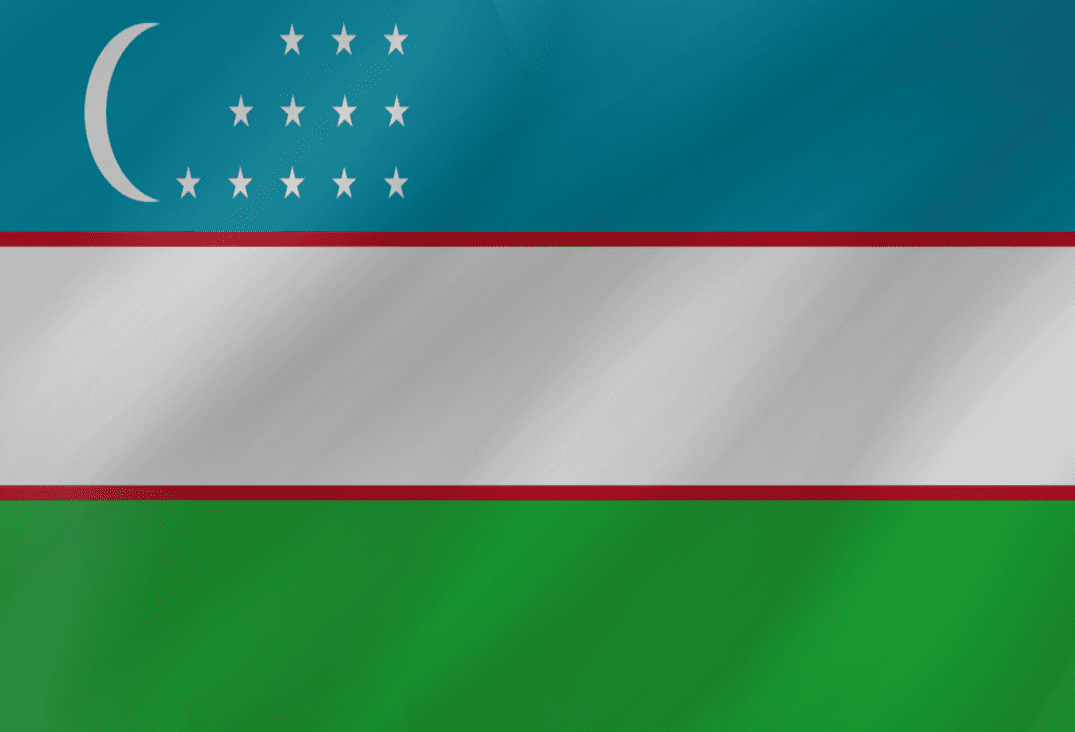
About Uzbekistan, Tashkent and Samarkand
Uzbekistan is a double landlocked country in Central Asia, which is situated between two big rivers: the Syr Darya (ancient Jaxartes River) to the northeast and the Amu Darya (ancient Oxus River), to the southwest. Uzbekistan has a youthful population, with the median age being around 28-years-old. The Uzbek SSR, or the Uzbek Soviet Socialist Republic, as it was formally called as a republic of the Soviet Union from 1924, gained its independence in 1991. This Central Steppes nation has had only two presidents since independence: the first was Islam Karimov, who was the leader of the Uzbek SSR, since 1989, and after the transition became president of independent Uzbekistan and remained as such until his death in 2016. The second, Shavkat Mirziyoyev, is said to be slightly more progressive and is trying to open up tourism. Previously, Uzbekistan had been a very difficult place to visit. Now they have made it easier for tourists and we did not even need a visa to enter. Though we did need to register our whereabouts within three days of arriving in Uzbekistan. It’s a rule for tourists, and no hotel or apartment will accept you unless you comply. Uzbekistan, which is at the foothills of the Himalayas, is considered the heart of the ancient silk road, once explored by Marco Polo himself. Human settlement goes back at least 55,000 years. Beginning at least by 500 BCE, Uzbekistan has had a succession of invasions throughout its history, including by the Persians, Alexander the Great and the Greeks, the Yuezhi, the Huns, the Turks, Arabs, the Mongols, the Timurids, the Shaybanids, and the Russians. In Uzbekistan, protests are illegal, journalists get jailed, and rarely do you see opposition parties in elections. Tashkent, the capital city of Uzbekistan, is very close to the border of neighboring Kazakhstan. Historically Tashkent, which translates to “stone village,” was a significant trade center connecting Europe with Asia. Today, it is a metropolitan city, with a population just over two million, some skyscrapers, grand mosques, a ferris wheel, a proclivity of stone-monuments celebrating men on horseback; and lots of LEGO-like soviet-era apartment blocks on tree-lined streets.Culturally, Tashkent has a myriad of ethnic influences, having been conquered by the Arabs in the 8th century, the Mongols in the 13th, later ruled by the Timurids and the Shaybanids, and had a brief stint of independence before the Russians captured the city in 1865.
I marveled at Tashkent’s eclectic mix of influences: awestruck by the old Islamic architecture; stupefied by the Russian-style monuments; and enamored by the hints of European influences sprinkled throughout. I especially loved visiting the Chorsu Market, a large round building with colorful stalls, selling all sorts of foods from spices to vegetables, pickles, to watermelons, to full butcher shops chopping meat in front of you.
I also stopped for reflection at the Barak Khan Madrasah, an Islamic school dating from the 16th century, with ornate tile work and a large fountain display out front.
Walking down the wide-paved streets, you find markets filled with books, and relics from the Soviet era, such as old Russian war medals.
The highlight of my time in Uzbekistan was traveling to Samarkand with Mukhlisa; the epicenter of the historic Silk Road: a network of trade routes connecting the Mediterranean to Asia, and the place which most inspires Mukhlisa.
It was important to Mukhlisa that we visit these ancient sites. Bukhara, another silk-road city, and Samarkand, are Mukhlisa’s favorite places around Uzbekistan.
We took a three-hour-long high speed train to Samarkand, in North Eastern Uzbekistan, part of the Zarafshan River valley. It is now an agricultural area, with cotton as one of its main industries.
Samarkand is considered one of the oldest continuously inhabited cities in Central Asia. Archeologists date civilization in Samarkand back to 1,500 BCE.
In the fourth century BCE, it was the capital of Sogdiana, an ancient country in present day Uzbekistan.
The city was conquered by Alexander the Great in 329 BCE. It later came to be ruled by the Turks, the Arabs, the Persians, and passed through various rulers’ hands.
The Registan in Samarkand is among the world’s oldest preserved madrasahs. A Madrasah is an Arabic word for “a place of study.” These magnificent buildings were schools, places to reverently study Islam.
The historic buildings in Samarkand, such as those which make up the Registan Square, the Amir Temur Mausoleum, and the Shah-i-Zinda necropolis, are some of the most impressive man-made structures I have ever laid eyes on. Intricate tile work on the exterior in geometric patterns, teal domed roofs. Interiors filled with gold plated ceilings.
Three Things To Do in Uzbekistan
- Marvel at the ornate Islamic art and architecture found in historic silk road cities of Samarkand, Bukhara, and Khiva.
- Try the national cuisine: Pavlov
Shop at the massive and colorful local market, Chorsu, in Tashkent.
Stephanie’s Top 3 Travel Tips to Visit Uzbekistan
- Know exactly what’s in your luggage and be ready to explain it all at customs.
- Be prepared for lots of friendly locals asking to take selfies with you
- Shop for traditional clothes, rugs, or scarves to bring back an authentic souvenir.
Useful Links:
